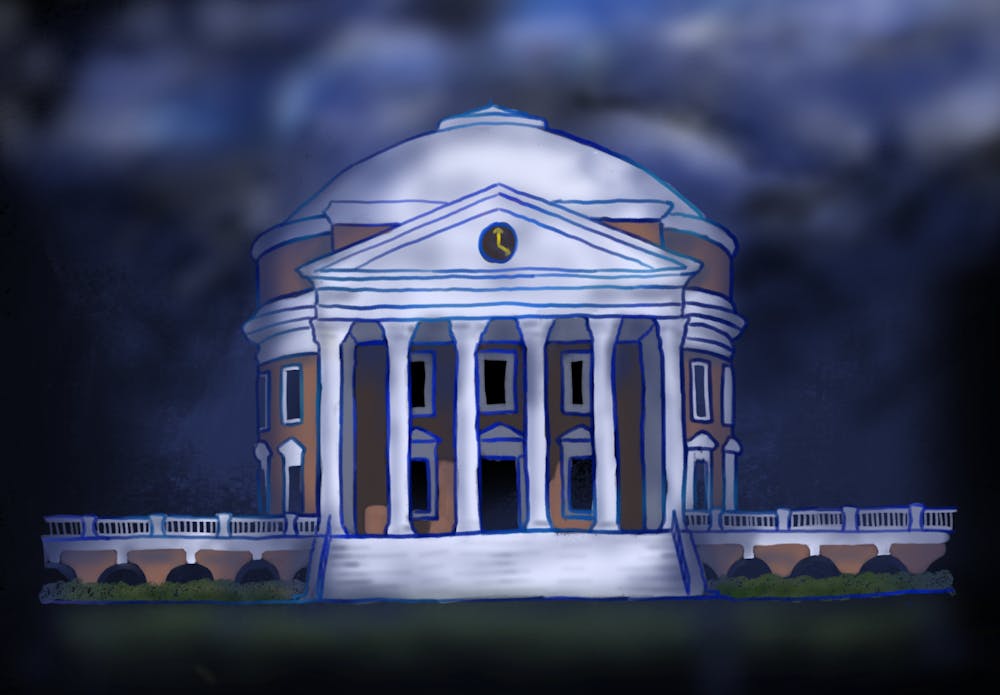Three months ago, the 118th Congress became seemingly enthralled with the plot of Mean Girls, so much so that they started reenacting its characters inside the U.S. Capitol. Rep. Matt Gaetz (R-Fla.) was the attention-loving Regina George, former Speaker of the House Kevin McCarthy was the exiled Cady Heron and the ever-neglected school principal was the U.S. economy. However, the reality is far from a comedy — the potential for a government shutdown continues to loom over the head of every American. The impact is particularly potent for Virginia residents because the state relies on a stable federal government to maintain its gross domestic product. The University also requires a strong federal government in order to function. As such, we as students must not become normed to the stagnance and dysfunction that have characterized budget talks. We must, instead, remain cognizant of the threat of a government shutdown that could endanger our education.
But who bears the blame for the current peril? Recent concerns over a government shutdown stem from chaos in the House of Representatives. In early October, a small rebel band of Republican representatives led by Gaetz allied with the House Democrats to remove McCarthy. This rogue group cited a lack of fiscal responsibility as justification for a change in leadership. The new Speaker is Rep. Mike Johnson (R-La.), a hardline conservative who is ranked near last out of all federal legislators in terms of bipartisanship. His record is troubling because while temporary spending bills have narrowly avoided multiple government shutdowns over the last few months, the divide on whether to shrink or expand federal spending persists — embittering the same faction that ousted McCarthy. Thus, the question of government shutdown has yet to disappear. Despite such politicking, the chaos has subsided enough for a new deal to be proposed. We must hope that our representatives can act like adults long enough to pass a real bill instead of a mere stopgate measure that postpones the real issue — but there is no guarantee of this.
If our representatives fail to pass this proposal, the economic impacts of a government shutdown are dramatic for both Virginia and the University. For one, the federal government constitutes a huge portion of the Virginia economy. It is one of the state’s largest employers, providing roughly 150,000 jobs to account for 7.4 percent of the total Virginia workforce. The federal government is also the largest contributor to Virginia’s GDP with $112.2 billion in value added. Without the federal government, Virginia would lose the largest contributor to its economy and thousands would become unemployed, particularly in the suburbs of Washington, D.C.
The Virginia suburbs of Washington, D.C. are both where the majority of government employees live and from where a high concentration of the University’s student body hails. This means that a government shutdown would spell disaster for not only the state’s economy but also the ability of University students to pay tuition. Widespread temporary unemployment in this region would force many families to rely on savings for months at a time. This in turn could lead to increased reliance on either University assistance or FAFSA support to pay tuition.
The U.S. Department of Education does have a contingency plan in place for a potential shutdown, allowing funds to flow directly to students through FAFSA and to the University’s student aid office in Spring 2024. While not ideal, this plan could theoretically be workable. However, it is quite possible that a shutdown could simply be postponed again or even continue until the fall 2024 semester, the time when FAFSA efficiency in processing is most key. Such processing is partially reliant upon having staff who undertake this role, something which would become harder as many government employees are furloughed. A decrease in efficiency at this point could bog down loan provisions, putting many University students at risk of being unable to afford tuition for the fall semester, and the University at risk of being unable to fund some of its functions.
In addition to tuition payments, the quality of an institution of higher education takes a hit if the government closes its doors. While student aid is somewhat protected by a contingency plan, research grants are not. Whatever money has been given prior to the shutdown is all that the University will receive until the DOE reopens. This creates a stressful situation for professors as they try to stretch existing funds and look for ways to both advance their groundbreaking research and provide students with real-world knowledge without federal money. On a macro scale, the University’s prestige is partially dependent on the quality and volume of research that it produces, and a sudden drop-off would require abundant future effort to resume a satisfactory publication flow. In short, the dangers of a government shutdown for Virginia, and by default the University, are numerous.
Our House of Representatives has continually demonstrated that they are not willing to put the needs of those they represent first. As residents of Virginia, the University student body cannot accept the high school drama that has held Congress hostage — and all the stagnance and dysfunction that accompany said drama — as a normal. Reach out to representatives, protest events and talk to the University’s leaders about what you can do. Temporary spending bills can only get us so far, and as much as they act like it, congresspeople are not high school teenagers. Do not hold them to a high school standard.
Paul Kurtzweil is a senior associate opinion editor who writes about economics, business and housing for The Cavalier Daily. He can be reached at opinion@cavalierdaily.com.
The opinions expressed in this column are not necessarily those of The Cavalier Daily. Columns represent the views of the authors alone.





